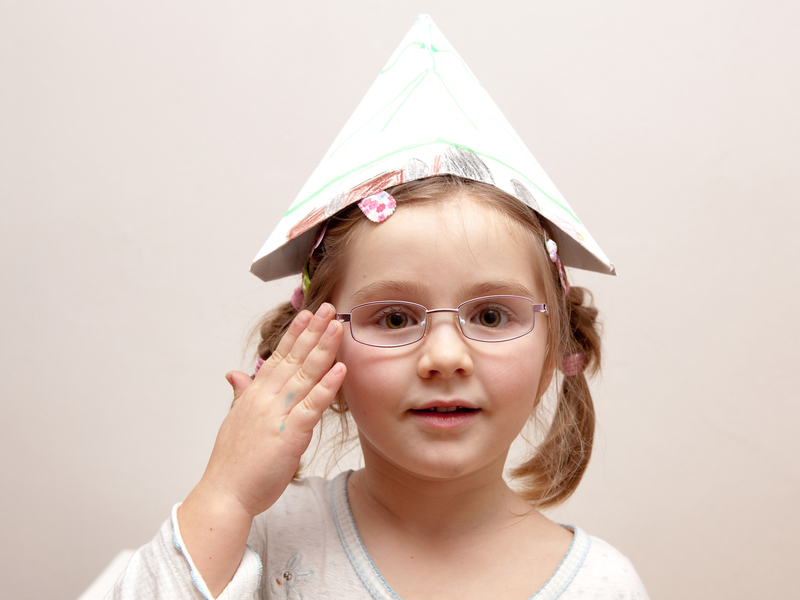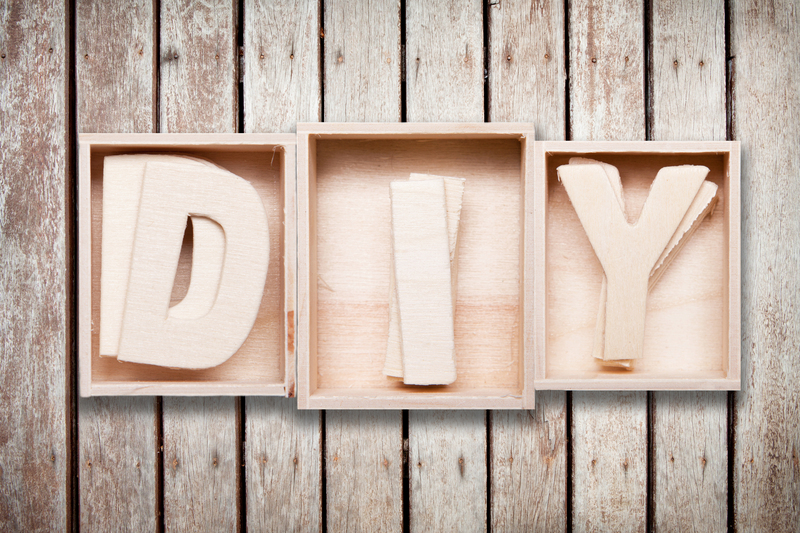Embrace Simplicity: The Art of Decluttering and Minimalist Living
In today's fast-paced world, we are constantly surrounded by visual noise and material possessions. Many people find themselves overwhelmed by the chaos of their environments, seeking a more meaningful and balanced lifestyle. That's where the art of decluttering and minimalist living shine, offering an invitation to rediscover what truly matters. In this comprehensive guide, we'll explore the philosophy of embracing simplicity, the transformative benefits of decluttering, and actionable steps to begin your own minimalism journey.
Understanding Minimalism: Beyond Aesthetics
Minimalism is often misconstrued as merely an interior design trend focused on sparsely decorated spaces. However, living minimally is much more than having empty countertops or white walls. At its core, minimalism is about intentional living--choosing to surround ourselves with only the things we need, value, or cherish, and letting go of excess items that do not serve a purpose or bring joy.
Key Principles of Minimalist Living
- Intentionality: Every item in your life (from clothing to relationships) is chosen with purpose.
- Quality over quantity: Minimalism encourages investing in fewer, higher-quality items instead of accumulating more.
- Freedom from consumerism: A shift away from the constant desire to buy more, allowing you to focus on experiences rather than possessions.
- Clarity and focus: By removing distractions, minimalism nurtures mindfulness and deeper concentration.
Embracing a minimalist approach doesn't demand perfection; instead, it invites you to recognize what is essential and to eliminate what isn't.

The Benefits of Decluttering and Minimalism
The journey toward simple living brings transformative benefits, both physically and mentally. Here are some of the most significant advantages:
- Reduced Stress: A cluttered space can cause overwhelm and anxiety. When you declutter, you create a more peaceful, calming environment.
- Improved Productivity: Minimalism helps you stay focused and organized, leading to increased efficiency in daily tasks.
- Saves Time and Money: With fewer possessions, cleaning and maintenance require less time. You are also less likely to spend money on unnecessary items.
- Increased Contentment: Focusing on what you truly need and love brings gratitude and happiness.
- Environmental Benefit: Minimalists often make more sustainable choices, reducing waste and supporting eco-friendly practices.
Psychological Impact of a Clutter-Free Life
A significant body of research links decluttering with improved mental wellbeing. A tidy space helps lower cortisol levels, the hormone related to stress. By embracing simple living, you can enhance your sense of control, achieve clarity of mind, and foster a more positive lifestyle.
Practical Steps to Begin Your Decluttering Journey
Starting to embrace simplicity can feel overwhelming at first, especially if you've accumulated possessions over years. However, with a structured approach and mindful intention, you'll find it gets easier with every step.
1. Set Clear Goals
Before you begin, define why you want to live minimally. Is it to reduce stress, save money, or make more time for family? Clear intentions will keep you motivated and provide direction as you make changes.
2. Tackle One Area at a Time
Trying to declutter your entire life overnight can be overwhelming. Instead, approach one space at a time--whether it's your wardrobe, a kitchen drawer, or your digital files. Celebrate small wins to build momentum.
3. Sort Your Belongings Thoughtfully
- Keep: Useful, loved, or necessary items.
- Donate or Sell: Items in good condition that you no longer need.
- Recycle or Discard: Broken or unusable things, disposed of responsibly.
If you're having trouble letting go of certain items, ask yourself:
- When was the last time I used this?
- Does this bring me joy?
- Is there something else that serves the same purpose?
4. Organize What Remains
Choose functional storage solutions and designate a place for every item. This step not only maintains order but also helps prevent future clutter from accumulating.
5. Adopt Mindful Purchasing Habits
Living a minimalist lifestyle doesn't stop at decluttering. It means cultivating awareness every time you acquire something new. Pause and ask: Do I really need this? Will it add value to my life?
6. Maintain with Regular Reviews
Set aside time periodically to evaluate your possessions and ensure that your home continues to reflect your values and needs. Minimalism is an evolving practice!
Minimalism For Different Areas of Your Life
Minimalist Home
A minimalist home focuses on functionality and tranquility. Declutter surfaces, keep only essential furniture, and use neutral colors to foster a sense of serenity. Opt for quality over quantity when it comes to household items.
Minimalist Wardrobe
The concept of a capsule wardrobe--a small collection of versatile, timeless clothing pieces--illustrates minimalism in fashion. Donate seldom-worn clothes and only keep items that fit well and make you feel confident.
Digital Minimalism
Clutter doesn't just exist in the physical realm. Digital minimalism means streamlining your digital devices: unsubscribe from unnecessary newsletters, organize files, declutter your phone apps, and limit screen time.
Minimalist Finances
Apply minimalist principles to your finances by tracking expenses, eliminating unnecessary subscriptions, and prioritizing meaningful purchases. This approach can lead to greater savings and reduced financial stress.
Troubleshooting Common Roadblocks
Despite the benefits, transitioning to a simpler life often comes with challenges. Here are some common obstacles and tips for overcoming them:
- Emotional attachment: Many items carry sentimental value. Instead of purging everything, aim to keep a few meaningful mementos and let go of those that no longer serve you.
- Fear of missing out: The concern that you'll need something in the future can be paralyzing. Remember, most items can be easily replaced or borrowed if necessary.
- Guilt or obligation: Gifts and inherited items can feel burdensome. Honor the intention behind the gift, but give yourself permission to part with things that don't enrich your life.
- Lack of time: Decluttering doesn't have to happen all at once. Dedicate 10-15 minutes each day to tidying a small area, and celebrate your progress.
Minimalism as an Ongoing Journey
Minimalist living isn't one-size-fits-all and it certainly isn't about deprivation. Your version of simplicity should reflect your personal values, lifestyle, and needs. As you embrace decluttering and minimalism, you may find that the process opens space for creativity, deeper connections, and greater appreciation for the present moment.
Over time, those who commit to simple living report feeling lighter, freer, and more at peace in their daily lives. Trust the process and allow your home and habits to evolve for the better.

Inspirational Quotes on Simplicity and Minimalism
- "Simplicity is the ultimate sophistication." -- Leonardo da Vinci
- "The ability to simplify means to eliminate the unnecessary so that the necessary may speak." -- Hans Hofmann
- "Have nothing in your house that you do not know to be useful, or believe to be beautiful." -- William Morris
Conclusion: Start Your Minimalist Journey Today
Embracing simplicity through the art of decluttering and minimalist living is an empowering path to greater peace, clarity, and purpose. By letting go of physical and mental clutter, you create the room to enjoy life's true treasures. Whether you're new to the concept or a seasoned minimalist, remember--the journey to simplicity is deeply personal and eternally rewarding. Take your first step today and transform your home and life with the freedom of less.
Frequently Asked Questions
-
How do I start decluttering if I feel overwhelmed?
Begin with a small, manageable space--like a single drawer. Set a timer for 15 minutes and focus only on that area. Simple, consistent efforts add up over time. -
Can I be a minimalist if I have a family?
Absolutely. Involve family members in the decision-making process and model mindful consumption. Minimalism looks different for everyone but benefits all ages. -
Will I have to get rid of everything?
Not at all. Minimalism isn't about deprivation but about intention. Keep what matters most to you and let go of the rest. -
Is minimalist living expensive?
Paradoxically, living simply often saves money by reducing unnecessary purchases and focusing on quality over quantity.
Discover the peace of mind and freedom that comes with embracing simplicity--your journey to a minimalist life starts now.